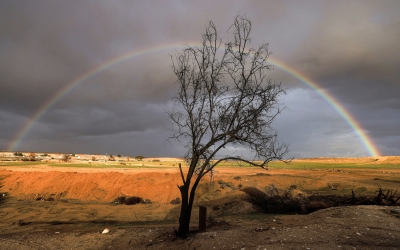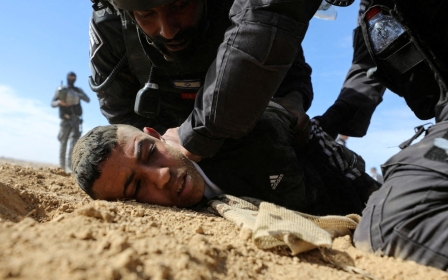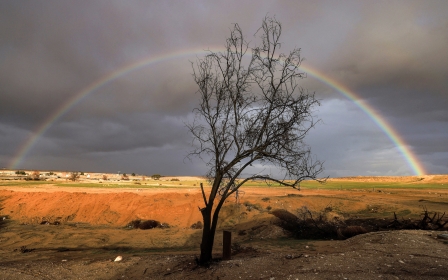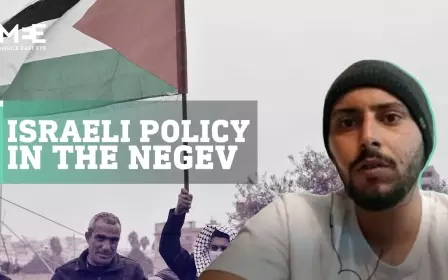Israel to resume forestation plan in Negev near Palestinian villages
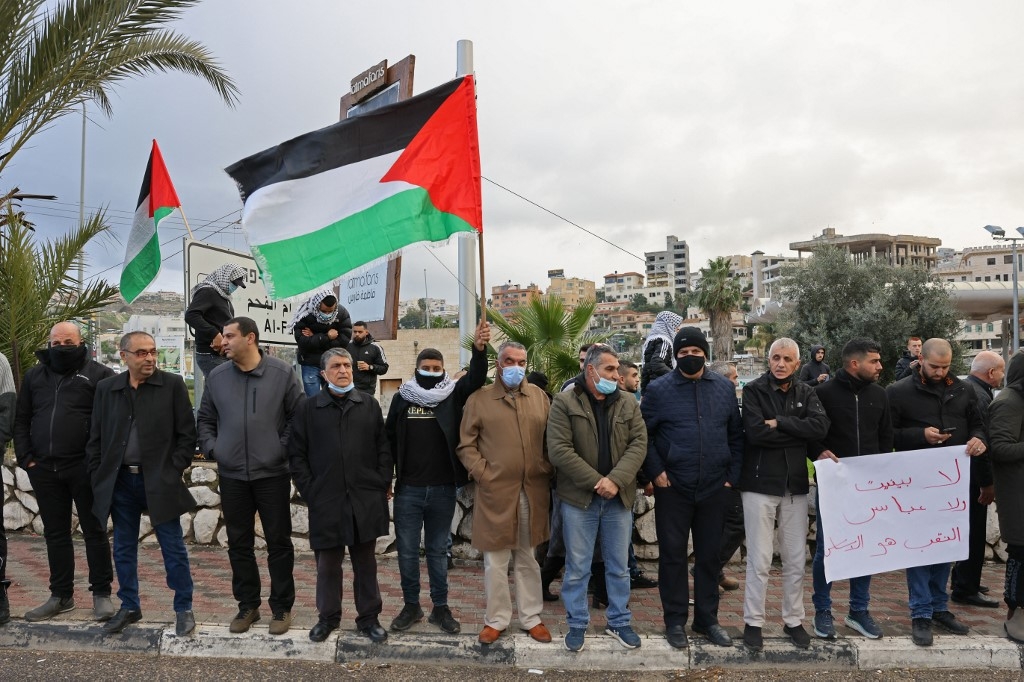
The Israeli government is set to resume a controversial plan to plant trees in the Negev desert in close proximity to Palestinian towns.
Minister of Housing and Construction Zeev Elkin, a Knesset member of the New Hope party, said that the Jewish National Fund (JNF) forestation plan would resume "soon", according to the national broadcaster Kan.
Almost 300,000 Palestinian citizens of Israel live in Negev, Israel's largest and southernmost territory.
In December and January, hundreds protested against the JNF forestation plan, which they claim is a pretext to pushing them out from their lands to make way for new Jewish towns.
The plan was put on hold temporarily after the feared collapse of the government of Prime Minister Naftali Bennett in January. The Islamist party Raam, who are part of the governing coalition and have an electoral base in the Negev, threatened not to endorse Bennett's government in any upcoming votes over the project.
Pro-settlement parties in the Knesset had supported the JNF's plan, namely the Likud and far-right Religious Zionist bloc. Elkin was a member of the Likud and left in December 2020 to join the New Hope which was formed by another Likud's defector, Gideon Saar.
The forestation plan saw Israeli police and JNF workers bulldozing crops that belonged to Palestinian citizens of Israel in the area of al-Naqe and al-Atrash villages in December and January.
Last week, Israel said that it intended to build two major Jewish towns in the Negev desert as part of a settlement expansion plan in close proximity to areas where Palestinian live.
The plan would house between 100,000 and 125,000 Israelis in a settlement located in the outskirts of the Palestinian village of Kasifa and the Palestinian-majority town of Tel Arad.
The Israeli government said that Kasif would be essential to solving the country’s housing crisis and providing homes for the ultra-orthodox community. Currently, there is a shortage of about 40,000 housing units for the Israeli ultra-orthodox community. The second town in the plan is dedicated to non-religious Jews near the border with Egypt.
However, there are almost 100,000 Palestinians who hold Israeli citizenship living in these 35 unrecognised villages in the Negev.
Israel claims that Palestinians have no right to lands of unrecognised villages. It has deployed "Green Police" units to prohibit them from planting seasonal fruits and vegetables and limit their cattle-grazing areas.
Unrecognised villages are denied any infrastructure or support from the government. There are no means of transportation, no roads, no schools, and Israeli authorities don't collaborate with their local leadership.
Middle East Eye propose une couverture et une analyse indépendantes et incomparables du Moyen-Orient, de l’Afrique du Nord et d’autres régions du monde. Pour en savoir plus sur la reprise de ce contenu et les frais qui s’appliquent, veuillez remplir ce formulaire [en anglais]. Pour en savoir plus sur MEE, cliquez ici [en anglais].


